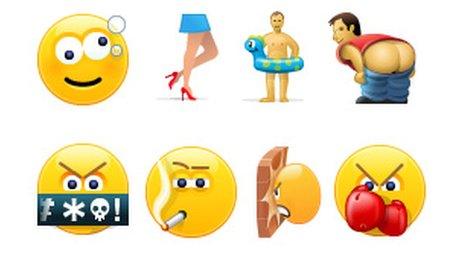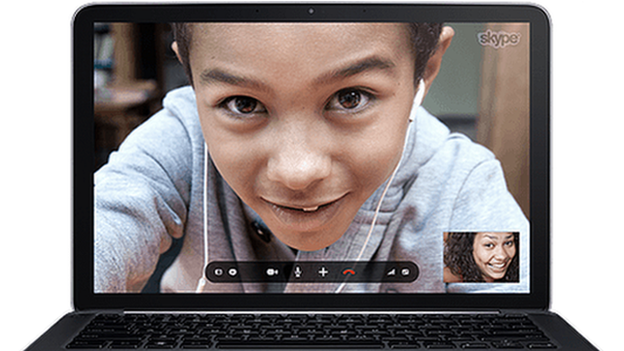Skype to get 'real-time' translator
- Published

Analysts say the translation feature could have wide ranging applications
Microsoft has unveiled a "real-time" language translation feature for its internet phone service Skype.
Chief executive Satya Nadella said the firm would launch a test version of the service, dubbed Skype Translator, for Windows 8 later this year.
The move comes as competition in the internet-based phone service sector has been rising, forcing firms to look at ways to attract more users.
According to Microsoft, Skype currently has 300 million monthly users globally.
"It is going to make sure you can communicate with anybody without language barriers," said Mr Nadella, who took over as chief executive in February.
The firm did not say if the service will be offered for free or if the users will have to pay a fee.
'Decades of work'
Microsoft had first showcased the technology nearly two years ago during a presentation in China.
At the time, the firm published a blog, external saying that researchers at Microsoft Research and the University of Toronto had made a breakthrough in reducing the error rate in speech recognition by over 30%.
It said it achieved this by using a technique called Deep Neural Networks, which is patterned after human brain behaviour and allows researchers to train more discriminative and better speech recognisers than previous methods.
"As we add more data to the training we believe that we will get even better results," it had said.
On Tuesday, Gurdeep Pall, corporate vice president of Skype said the latest feature, external was a result of "decades of work".
"We've invested in speech recognition, automatic translation and machine learning technologies for more than a decade, and now they're emerging as important components in this more personal computing era," he said.
"It is early days for this technology, but the Star Trek vision for a Universal Translator isn't a galaxy away, and its potential is every bit as exciting as those Star Trek examples."
Wide ranging applications
Microsoft bought Skype in May 2011 for $8.5bn (£5.2bn) - making it the firm's biggest acquisition at the time.
However, it has been facing increasing competition from a multitude of rivals, including Google Hangouts, Apple's Facetime, Blackberry's BBM, Tango and Viber.
Manoj Menon, managing director at consulting firm Frost & Sullivan said that once launched, the new feature could have wide ranging applications in sectors such as education and tourism.
He added that the translation feature may also help Microsoft to integrate Skype with its office social network site Yammer.
Microsoft bought Yammer - which operates like Facebook for communication within companies - for $1.2bn in 2012.
"Microsoft has acquired some great assets such as Yammer and Skype over the past few years," Mr Menon said.
"The ability to integrate these together will help unlock their value and the translate feature is a wonderful step in that direction."
Skype has also been taking other steps to try and attract more users.
Last year, it confirmed that it had developed technology for 3D video calls. But it has said it could be many years before the technology is launched.
- Published30 April 2014

- Published29 August 2013

- Published29 August 2013
